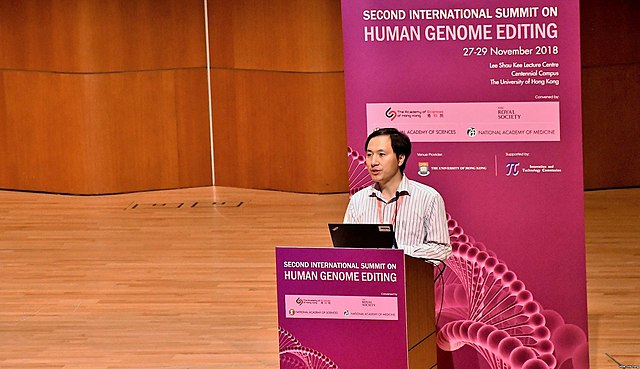The Transformative, Alarming Power of Gene Editing
By Dana Goodyear,
The New Yorker
| 09. 02. 2023
A rogue scientist showed that crispr gives humans the ability to transform ourselves. But should we?
He Jiankui, a young Chinese scientist known to his American colleagues as JK, dreamed of remaking humanity by exploiting the emergent technology of gene editing. He had academic polish, and an aptitude for securing institutional support. As a student, he had left China for the United States, where he did graduate work in physics at Rice and a postdoc in a bioengineering lab at Stanford. At the age of twenty-eight, he was recruited into a prestigious Chinese government program for foreign-educated talent, and was offered a founding position in the biology department of the Southern University of Science and Technology.
SUSTech was a newly created research institute in Shenzhen, a city in the midst of a biotech boom. JK, who arrived in 2012, likened Shenzhen’s startup culture to that of Silicon Valley—bold creativity was encouraged, and there was plenty of capital on hand. With colleagues from his lab, he often held brainstorming sessions at a café near campus, delineating his plans. In the first ten years, he would tackle a variety of genetic diseases; in the ten years after that...
Related Articles
By Liyan Qi and Jonathan Cheng, The Wall Street Journal | 03.26.2025
photo via Wikimedia Commons licensed under CC by 3.0
Chinese scientist He Jiankui set off global outrage and landed in prison after he skirted ethical guidelines and claimed he had produced genetically modified babies designed to resist HIV infection.
Now, the self-styled ...
By Anna Louie Sussman, The New York Times | 03.25.2025
On June 24, 2022, the same day the Supreme Court issued its decision in Dobbs v. Jackson Women’s Health Organization, I received a call from the fertility clinic where I’d been undergoing in vitro fertilization, informing me that seven of...
By Michael Gibney, PharmaVoice | 03.20.2025
The death this week of a teenager receiving Sarepta Therapeutics’ gene therapy Elevidys for Duchenne muscular dystrophy is a tragic reminder of the stakes involved in cutting-edge biotech innovation.
While gene therapies like Sarepta’s offer an opportunity to treat and...
By Staff, The Medicine Maker | 03.21.2025
"The Promise and Peril of CRISPR" cover by Johns Hopkins University Press
As a paediatrician taking care of children with sickle cell disease, Neal Baer, a Harvard Medical School graduate, was in awe of the power of CRISPR technologies. Later...




